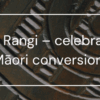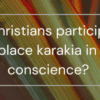
Research possibly useful but ‘secular’ language misleading
MEDIA RELEASE
New Zealand Christian Network national director Glyn Carpenter is interested in the study on religious values of Kiwis being undertaken by Professor Joseph Bulbulia, of Victoria University (stuff.co.nz. 30 Oct). But he is surprised at the comment attributed to Mr Bulbulia that ‘census data showed the country had been secular since at least the 1960s’.
“That statement is so imprecise as to be meaningless and certainly not what one would expect to hear from a professional academic’ said Carpenter.
“It is also inaccurate given that even the most recent census data still shows around half of Kiwis still call themselves Christian.
“The constant repetition through the media that New Zealand is a secular might suit some people’s agendas” said Carpenter, “but it is confusing and misleading and just plain wrong”.
It is far better to describe New Zealand as a religiously plural country. It would not be inaccurate to even describe New Zealand as a significantly Christian country because the largest belief group in the country is Christian.
[ENDS]
via Former Priest Gets $760,000 To Study Religious Values… | Stuff.co.nz.





